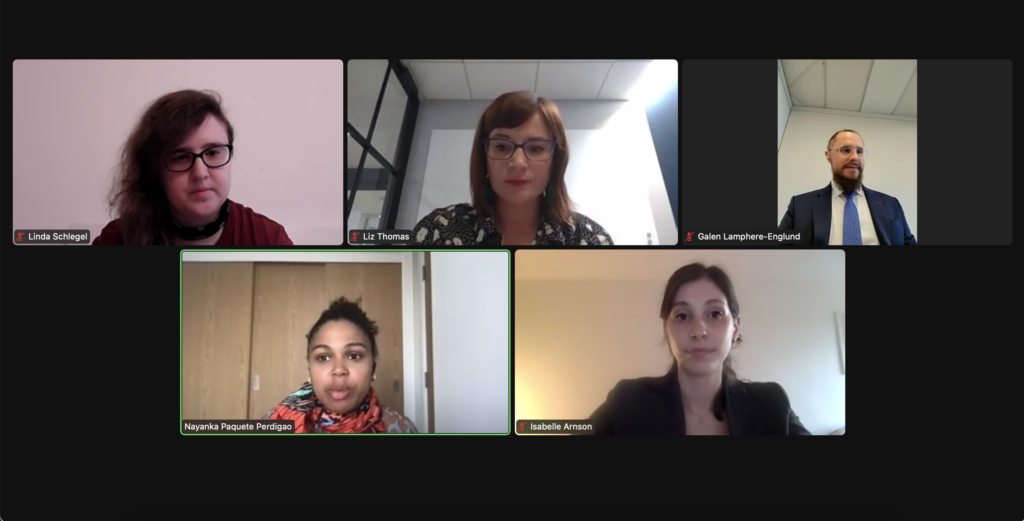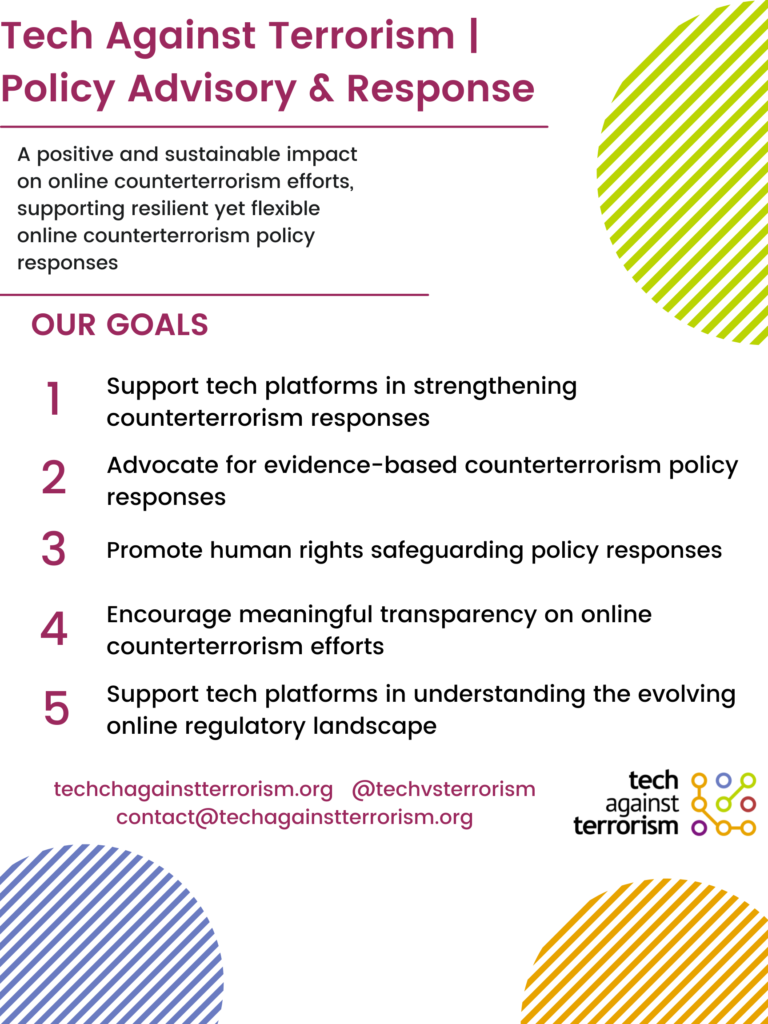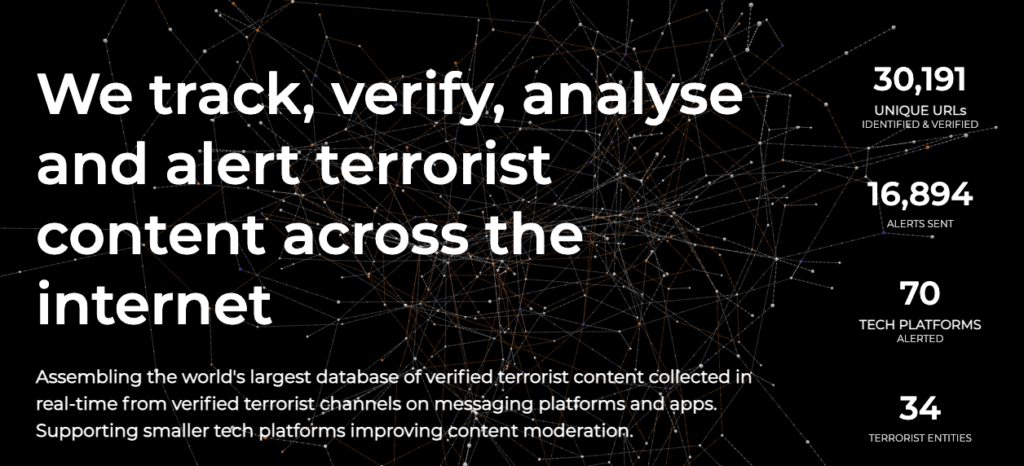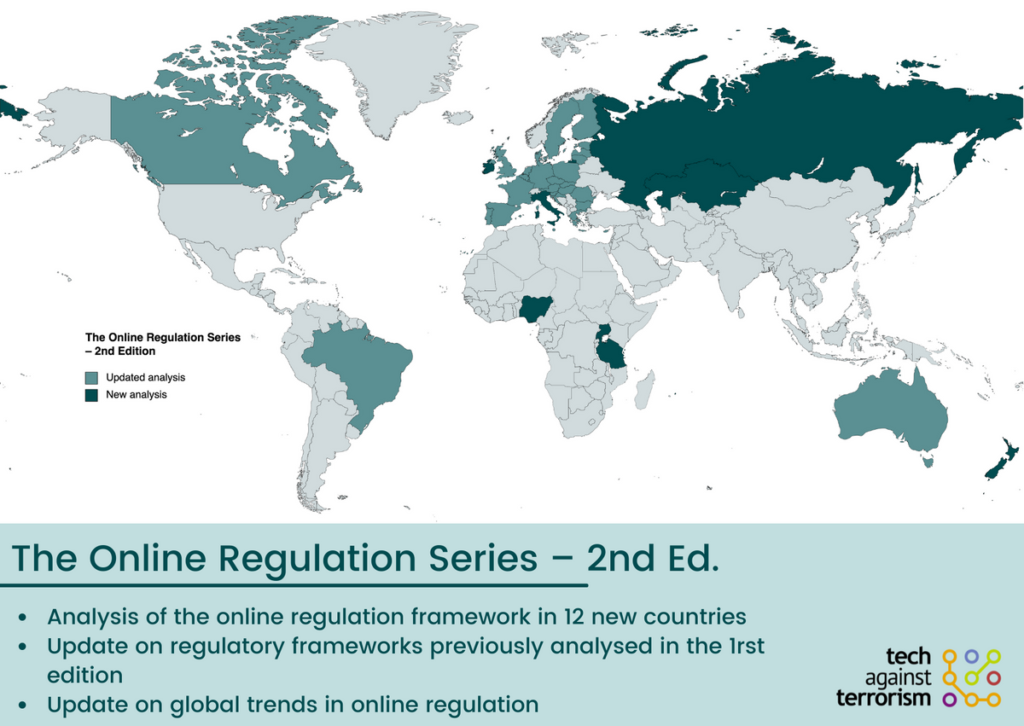Reader's Digest – 25 March 2022
Our weekly review of articles on terrorist and violent extremist use of the internet, counterterrorism, digital rights, and tech policy.
Job Alert!
- We are looking for a Communications Associate to shape and deliver our communications strategy for media and key stakeholders. This is suited for early career candidates with excellent comms skills and an interest in counterterrorism and tech policy. Find out more and apply here.
Webinar Alert!
- Thank you for joining us for our second webinar of the 2022 Tech Against Terrorism & GIFCT e-learning series, discussing “The Gamification of Extremism: Extremist Use of Gaming Platforms.” For those who missed this session and would like to access a recording of the webinar, please get in touch with us at contact@techagainstterrorism.org.
Agenda
- Linda Schlegel, Expert Researcher in Online Radicalisation and Extremism, Goethe University
- Galen Lamphere-Englund, Senior Adviser, Preventing and Countering Violent Extremism, Love Frankie
- Liz Thomas, Director of Public Policy, Digital Safety, Microsoft
- Moderators: Isabelle Arnson, Policy Analyst, Tech Against Terrorism
Dr. Nayanka Paquete Perdigão, Program Associate, GIFCT

- For the April webinar of our TAT-GIFCT e-learning series we will discuss "Audio Content & Detection: Moderation Challenges and Opportunities with Existing Audio Detection Models." For more information and to sign up details can be found here.
The Tech Against Terrorism Podcast
- Tune in to Episode 6: "Tracking Violent Islamist Behaviour Online” here, or wherever you get your podcasts. In this episode, our host, Anne Craanen, is joined by Mina Al-Lami, Laurence Binder, and Arthur Bradley to discuss the intricacies of how Islamist violent extremist groups operate online.
- So far in the series, we have discussed:
- You can now find all Tech Against Terrorism podcast episodes on our Knowledge Sharing Platform.
Tech Against Terrorism Updates
- We are delighted to share our first Terrorist Content Analytics Platform (TCAP) Transparency Report. The report analyses some key metrics throughout the first full year of TCAP alerts to uphold our transparency-by-design approach. This report also provides crucial insight on how terrorists use online platforms and details the impact of the TCAP in disrupting it.
- Tech Against Terrorism's Executive Director, Adam Hadley, presented at to United Nations this week during a meeting organised by the Counter-Terrorism Committee "Countering terrorist narratives and preventing the use of the Internet for terrorist purposes". He updated Member States on the crucial work of Tech Against Terrorism in disrupting terrorist use of the internet. The meeting was recorded and can be viewed here
- We are excited to have released a blog post which reports our findings on a comparative analysis of Islamist versus far-right terrorist use of the internet. This analysis incorporates a range of platform types and sizes, drawn from the TCAP’s first Transparency Report.
- Registrations are still open for this month's TCAP Office Hours, to be held on 30 March, 5-6pm BST. This month, our Office House will take an in-depth look at our recently released Transparency Report. You can register for Office Hours here. You can also request a recording of past Office Hours recordings on our website here.
- On 16 February, Tech Against Terrorism organised a roundtable discussion on “Assessing the threat of terrorist exploitation of E2EE services and existing responses.” This event marked the launch of a three-part roundtable series on assessing and countering terrorist use of end-to-end encrypted (E2EE) services, aimed at highlighting risk mitigation strategies that safeguard privacy and security. This session saw participation from counterterrorism experts, digital rights advocates, as well as government and tech sector representatives.
- Tech Against Terrorism’s investigation on Russian-backed forces in Ukraine and their links to neo-Nazi groups has been quoted in The Guardian. The article points to the presence of neo-Nazi presence in Russian-backed mercenaries in Ukraine, and how these findings offer a stark contradiction to Russia's narrative on the presence of fascism in Ukraine to justify the conflict.
Top Stories
- Input reports that as Russia continues to censor Western social media companies, Clubhouse offers a safe-heaven for free online speech in Russia. Clubhouse appears to be off Russia's social media censors meaning its services can offer narratives outside of those sanctioned by the Kremlin.
- Tech Policy Press reports that evidence presented in the trial of the 2017 'Unite the Right' rally attributes blame on social media companies for failing to de-platform violent extremists and enabling them to promote and engage in violence.
- Assistant UK Police Commissioner, Matt Jukes, identifies how the far-right are using online first-person shooter game tropes to appeal to and radicalise youths remotely.
For more information on the relationship between violent extremists and gamingsee our webinar on "The Gamification of Extremism: Extremist Use of Gaming Platforms", for access please get in touch with us at contact@techagainstterrorism.org.
- Hope Not Hate, reports on the divide between far-right violent extremists in the UK regarding the Russia-Ukraine conflict, and highlights how Steven Lennon (AKA Tommy Robinson) has pushed Russian misinformation about the conflict in Ukraine to his Western audience.
- Rest of World outlines the recent wave of online regulation. The article explores how this could pose a danger to tech company employees, as can be seen in Diego Dzodan's case.
To find out more about the landscape of international online Regulation see our Online Regulation Series handbook here and the ORS 2.0 here.
Tech Policy
- Brazil Lifts Its Ban on Telegram After Two Days: On Friday 18 March, Brazil's Supreme Court banned Telegram, the ban was lifted two days after. The turnaround was so swift that the ban never actually came into effect. Justifications for the ban included Telegram's failure to delete classified information shared by the account of President Jair Bolsonaro, and to remove the accounts of a prominent supporter of Mr. Bolsonaro who has been accused of spreading misinformation. This information and account were deleted within the 2 day ban. Telegram also committed to marking posts which are known to be inaccurate in an effort to respond to online misinformation. Although this may appear insignificant, the article identifies how Telegram has historically maintained a hands-off approach to content moderation, making it a popular choice for far-right violent extremist users. Compliance with government demands sets a new precedent for the platform, marking a substantial case study in online regulation efforts. (Jack Nicas and Andre Spigariol, The New York Times, 20.03.2022).
For more information on the context of online Regulation in Brazil, see the Brazil edition blog found in our Online Regulation Series (ORS) 2.0 here.
For any questions, please get in touch via:
contact@techagainstterrorism.org


